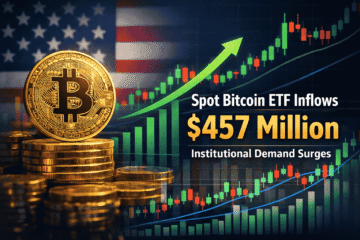
Coinbase, the leading U.S.-based publicly traded cryptocurrency exchange, has confirmed that it is actively evaluating the possibility of applying for a U.S. federal bank charter. A company spokesperson told Cointelegraph that while discussions are ongoing, no official decision has been made at this time.
“This is something Coinbase is actively considering but has not made any formal decisions yet,” the spokesperson noted.
This announcement aligns with growing speculation that several major crypto firms are exploring the path toward becoming federally chartered banks. In addition to Coinbase, stablecoin issuers such as Circle and Paxos, along with crypto custody provider BitGo, have also been linked to similar intentions. The move signals a potential shift in how digital asset companies may soon operate within the traditional financial system.
While Coinbase has yet to specify the strategic reasons behind seeking a federal bank license, such a charter could unlock new operational capabilities. For example, it would allow crypto firms to engage in core banking activities like accepting deposits and issuing loans—capabilities typically reserved for traditional financial institutions.
However, becoming a federally chartered bank also means subjecting the firm to heightened regulatory scrutiny and compliance obligations. Anchorage Digital, a crypto-focused financial institution that obtained a federal bank charter, serves as a key example. Despite having the charter, Anchorage Digital Bank is currently under investigation by the U.S. Department of Homeland Security’s El Dorado Task Force, illustrating the rigorous oversight such licenses entail.
Surge in Interest for U.S. Bank Charters Among Crypto Firms
The trend toward banking charters in the crypto industry gained momentum after the U.S. Office of the Comptroller of the Currency granted conditional approval for a federal bank charter to Paxos in 2021. This development marked a turning point, signaling a more open regulatory environment that has encouraged firms to seek formal banking status.
Regulatory attitudes at the federal level also appear to be shifting. Federal Reserve Chair Jerome Powell recently emphasized the importance of establishing a robust legal framework for stablecoins as digital assets gain mainstream traction. Powell acknowledged that the crypto sector offers use cases with broad consumer appeal, reinforcing the need for regulatory clarity.
Stablecoin Legislation Gains Momentum
As regulatory discussions continue, two key legislative proposals are shaping the future of stablecoins in the U.S.—the STABLE Act and the GENIUS Act.
The Stablecoin Transparency and Accountability for a Better Ledger Economy (STABLE) Act, backed by Republican lawmakers, was recently passed by the U.S. House Financial Services Committee. It proposes federal oversight of stablecoin issuers and includes a two-year moratorium on issuing collateralized stablecoins backed by self-issued digital assets. Additionally, it mandates that reserve funds be segregated from operational business accounts.
On the other hand, the Guiding and Establishing National Innovation for U.S. Stablecoins (GENIUS) Act offers a more flexible regulatory path. Introduced earlier and passed by the Senate Banking Committee, the GENIUS Act envisions a dual federal-state oversight model. It aims to strengthen Anti-Money Laundering (AML) requirements, bolster reserve and liquidity standards, and enhance compliance with sanctions. Under this framework, stablecoin issuers would be formally classified as financial institutions.
The advancement of both bills highlights bipartisan momentum toward integrating stablecoins into the broader U.S. financial ecosystem, with an emphasis on responsible innovation and national economic competitiveness.
Source Link
Author: Sb
ARK cuts Coinbase again with $22M sale as Bullish position grows
February 9, 2026
Comments are closed.
More News
-
Firing Powell Could Crash Markets — Warren
April 20, 2025 -
Spritz Finance bill pay beta launches on Polygon Network
June 14, 2022 -
BC.GAME Unveils Brand Upgrade to Enhance Its iGaming Platform
September 4, 2024
Bitcoin News
-
ARK cuts Coinbase again with $22M sale as Bullish position grows
February 9, 2026 -
JPMorgan Launches First Tokenized Money Market Fund on Ethereum
December 16, 2025
Most Viewed
-
ARK cuts Coinbase again with $22M sale as Bullish position grows
February 9, 2026 -
JPMorgan Launches First Tokenized Money Market Fund on Ethereum
December 16, 2025











